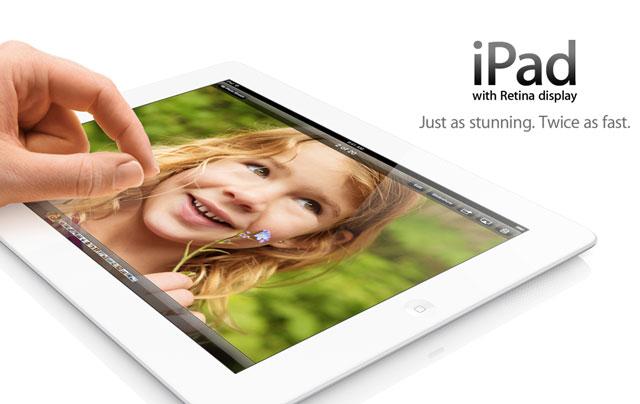Apple later this year is expected to launch a new 9.7-inch iPad that will become thinner and lighter by using the same touchscreen technology as the iPad mini, according to a new report.

The details were published on Thursday by DigiTimes, which has a spotty track record but has been known to receive advance word of Apple's potential product plans from component suppliers. Like the current iPad mini, the next-generation 9.7-inch iPad will reportedly feature what is known as "G/F2 (DITO) thin-film type" touchscreen technology.
Switching to a G/F2 touchscreen will allow the fifth-generation iPad to be thinner and lighter than the current fourth-generation model, which uses a glass-on-glass touchscreen assembly.
Apple's alleged plans to use "DITO" technology in the next iPad is said to signal that the company believes it has "more adequate supply." Thursday's report indicated that Apple is likely to choose G/F2 technology over a "one-glass-solution," or OGS.
Apple has reportedly tapped Japan's Nitto for thin-film materials and Nissha Printing for touchscreen modules; while Taiwan's TPK will handle lamination; and LG Display and Sharp will reportedly supply display panels. Together, they are expected to be able to supply as many as 5 million units per month.
Adding support to the DigiTimes report is the fact that analyst Ming-Chi Kuo of KGI Securities reported late last year that Apple would switch the touchscreen technology on its next iPad to G/F2. Kuo said that Apple plans to "dramatically lower the eight and thickness" of its 9.7-inch iPad in a hardware refresh set for this year.
While reports stemming from unnamed sources out of Apple's supply chain are questionable, Kuo has a respectable track record in predicting Apple's future product plans.
Apple's anticipated iPad update is not expected to arrive until later this year, as just this week the company gave an unexpected update to the current fourth-generation model in the form of a new high-capacity 128-gigabyte model. The new high-end iPad will go on sale next Tuesday and will cost $799 for the Wi-Fi-only model, and $929 for a cellular-capable variety.


